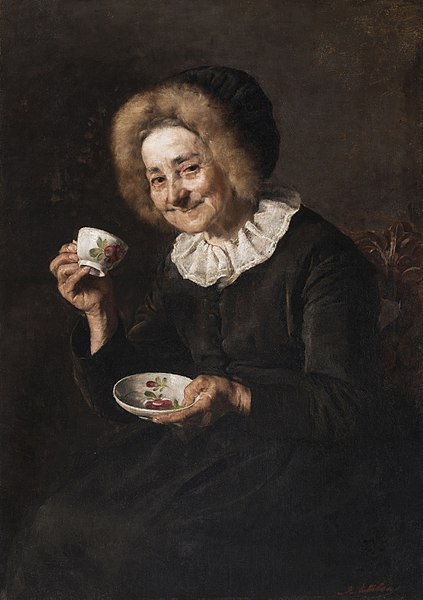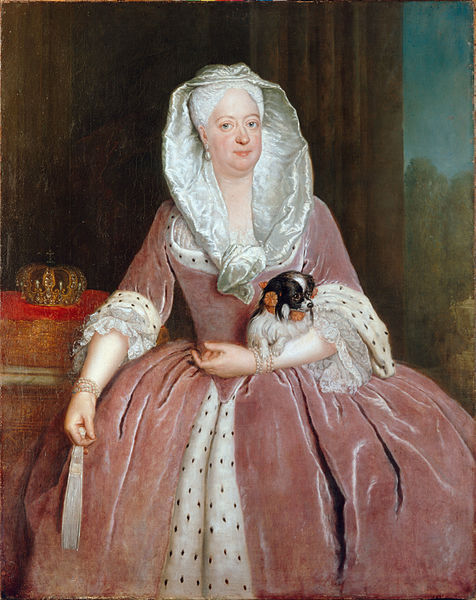
The Faculty of Nursing, HRH Princess Chulabhorn College of Medical Science (PCCMS), Thammasat University has introduced two new programs aimed to prepare the Kingdom as an aging society and relieve unemployment during the coronavirus disease 2019 (COVID-19) pandemic.
The TU Library collection includes a number of books about geriatric care.
The English adjective geriatric refers to old people, especially in the context of healthcare. The word derives from Ancient Greek terms meaning old age and doctor. So a doctor whose speciality is old patients has a specialty in geriatrics. In a comparable way, a doctor whose speciality is the illnesses of children is called a paediatrician.
As the media has reported about the new Care for Older People Certificate Program:
The faculty, led by Associate Professor Orphan To Singha, MD, Deputy Dean of Research, Innovation, and Relations, and Assistant Professor Benjamas Sirikamonsathian, Head of the Practical Nursing Certificate Program (Care for Older People), and the program staff have introduced these programs. The two programs are:
- Practical Nursing Certificate Program (Care for Older People)
The objective of the program is to train a practical nurse in response to the aging society trend and the needs of Chulabhorn Hospital. Students will learn to take care of the elderly in their daily routine both at the medical centers and the community.
PCCMS, aiming to create excellent health professions and healthcare systems, will be establishing 400 bed-capacity hospitals, Chulabhorn Oncology Medical Centre, Chulabhorn Hospital, and Bhattara Maha Raja Memorial Medical Centre. Opening the health centers needs a lot of medical professions especially nurses. Faculty of Nursing, PCCMS, understands that good hospital, medical centers, and medical professions can take the Thai Healthcare and Thai people’s quality of life to the next level, and this has been instrumental in the decision to start the Practical Nursing Certificate Program.
- Elderly caregiver certificate program
Nowadays, the ratio of the older population is increasing, creating a gap in the country’s workforce system. The environment and the system are all contributing to the unhealthy lifestyle and the problem like acute and chronic disease, disability, and lack of mobility in older adults. This training integrates both the theories and the practical aspects of the knowledge. The students will learn from real experience and situation, to make sure they can take care of the older adults properly.
The course is designed to be student-centered allows them to self-study from their own experience. Moreover, the coursework covers both the role of a caregiver at home and in a community. Also, the course aims to teach communication with other healthcare professionals and ethics. It is important that the students learn to value everyone’s humanity since it is what leads to the work that can truly upgrade the quality of life of the older adults and those surrounding them.
This training program is a 6-month intensive course. Everyone who has earned the degree will be able to start working as a caregiver in the public and privates nursing home right away. Whenever they are ready, they can transfer the credits from this caregiver certificate program to the Practical Nursing Certificate Program
The programs are certified by Thailand Nursing and Midwifery Council, so the graduates can work in every Thai and international hospital, and medical centers.

As students in the Faculty of Allied Health Sciences may know, the TU Library also owns a number of books about different aspects of Thailand as an aging society, from sociological, economic, and political science points of view.
The University’s innovation responds to a much-discussed trend in population growth studied by the National Economic and Social Development Board (NESDB), as reported in The Nation in 2017:
Thailand has been moving closer towards an ageing society since 2005, as the number of citizens aged 60 or older has steadily risen, said the National Economic and Social Development Board (NESDB). The number of aged people has risen to 11.23 million, or 17.13 per cent of the total population, this year. “Thailand will become a full-fledged ageing society in 2021, when their number will rise to 13.1 million or 20 per cent of the total population,” according to an NESDB report. Among them, those who are 70-79 and above 80, will account for 37.2 per cent and 19.1 per cent respectively. This makes a combined 56.3 per cent of the total aged population. This presents a challenge for families, communities and the country as a whole, as older people require more care for their welfare and assistance in their daily lives .According to health reports, the number of seniors needing assistance for their daily activities, such as moving around the house, eating and bathing, rose to 20.7 per cent in 2014 from 15.5 per cent in 2009. Meanwhile, 1.3 per cent of them cannot help themselves at all. Family is the first supporting unit for aged people, as children generally place high value on, and exhibit gratitude towards, their parents. However, the shrinking size of families has placed strain on this network. Single-child families accounted for 18.3 per cent of Thai families in 2015. The percentage of old people living alone rose to 8.7 per cent in 2014 from 3.6 per cent in 1994, while those living only with a spouse stood at 19 per cent in 2017, according to the National Statistical Office. Family members also have limited knowledge and tools to handle the daily care of their parents. Many have to play “sandwich” roles – looking after both their own children and their parents. Worse, caregivers themselves are getting older. Family members also suffer high stress, especially when they have to look after bed-bound patients. The government has supported communities to look after ageing members.
In rural areas, members of tight-knit communities often co-operate, but they face a shortage of manpower especially among those who are able to take care of bed-bound patients, said the NESDB. In urban areas, there are sufficient physicians but not enough volunteers to visit patients or elderly people at their homes. There is also a limit to secondary care services. In Bangkok, community leaders have organised health services for community members, but senior citizens have low trust in community health services. And ageing people have limited financial resources to access health services. Many families have turned to private health services and these are on the rise. However, there is a lack of quality control in these services, even though the Public Health Ministry has issued guidelines for senior care. Senior citizens are covered by the universal health care scheme, but they generally only get acute care services. Many do not get access to rehabilitation services after they leave hospital. The NESDB has suggested that the government increase the capacity of families and communities to look after ageing members. Quality of private health services must be monitored and controlled, it said. The government may have to provide medium-term services through secondary-care hospitals as a base in order to delay the age at which people enter into dependency. The government has also been urged to consider raisings fund by issuing “social impact bonds” to support healthcare services for the ageing population in the long run.

(All images courtesy of Wikimedia Commons)
